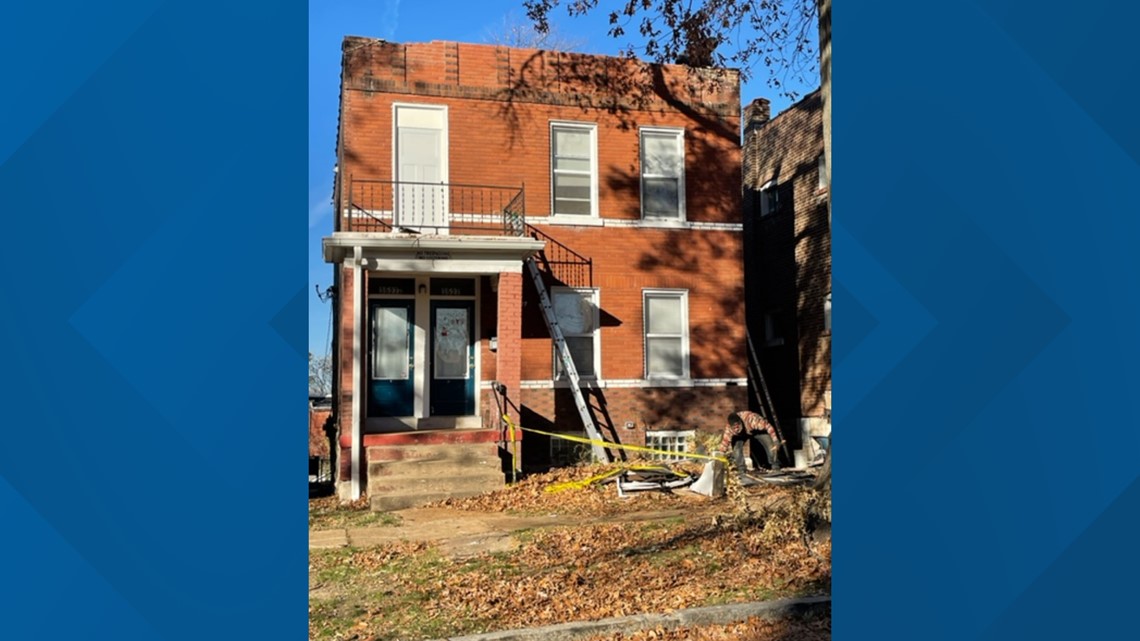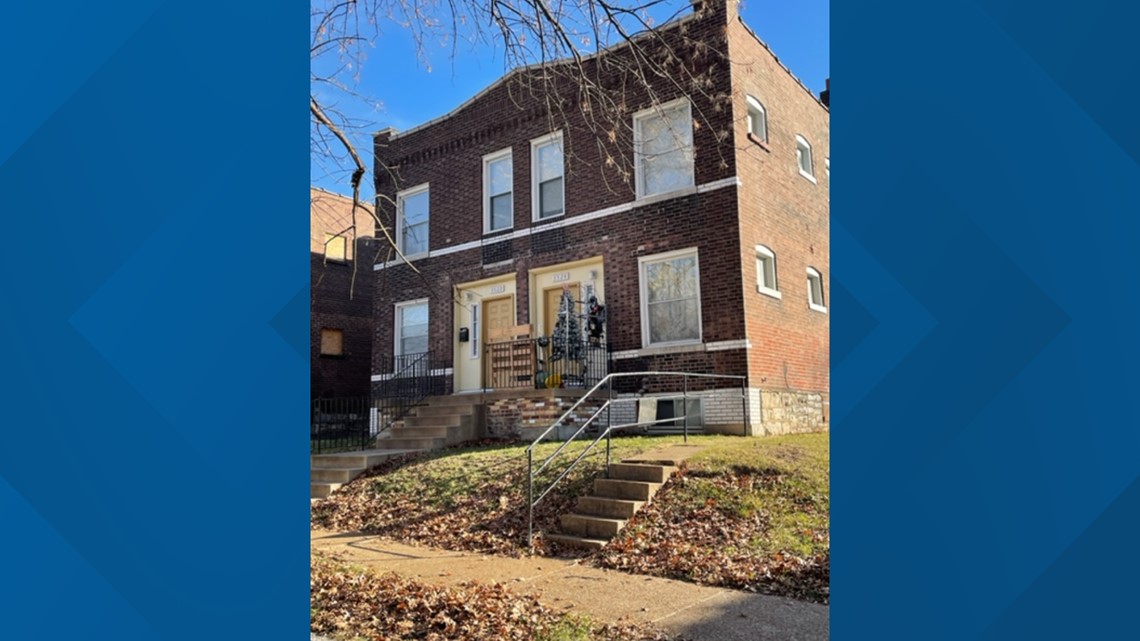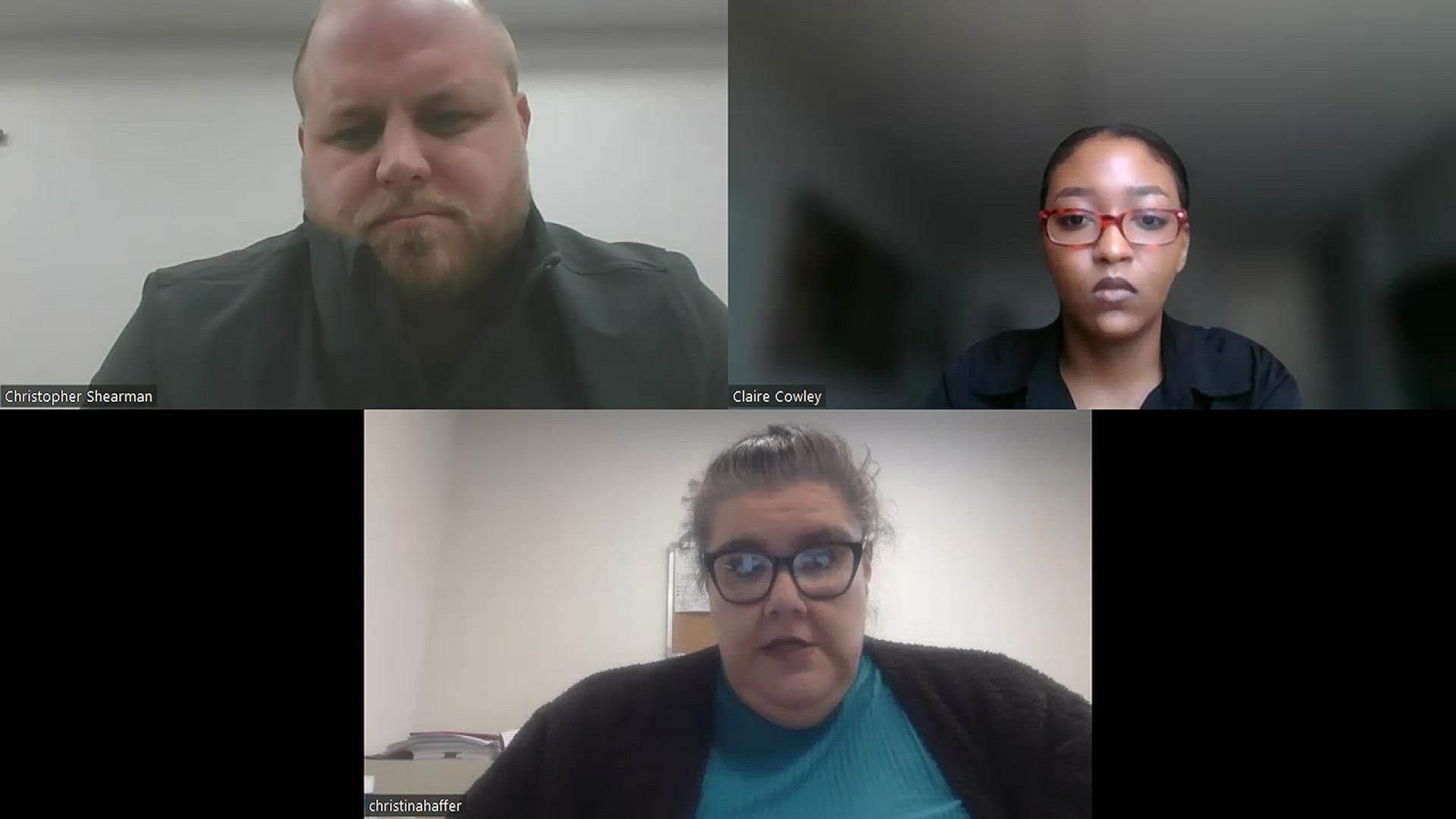ST. LOUIS — 5 On Your Side reported in November about the barriers that remain for people experiencing homelessness in St. Louis when the area braced for colder weather.
We talked to landlords and homelessness advocates about the risks of permanently housing those facing homelessness. We also explored the problems with local shelters and why some people facing homelessness do not want to stay there.
On the other hand, others experiencing homelessness may temporarily live in a shelter and want to transition into permanent housing. These individuals possibly face struggles with certain bad habits or mental health disorders.
But landlords we spoke to said one way to help is to have strong case management between shelters and landlords.
The problem with some city shelters
Alex Cohen, a co-founder of a grassroots coalition of several unhoused advocates united for crisis support to help people experiencing homelessness called Tent Mission STL, said people will not go to shelters because of the rules.
For example, he said “abstinence only” policies can prohibit sexual activity, but also cigarettes, alcohol, and more potent drugs. Cohen said those rules decrease the likelihood that some people will use a shelter. If rules get broken, then people are banned.
Cohen said abstinence does not work within shelters because it is unrealistic.
“It's not really helpful to demand someone be sober and they’re getting no support with their addiction or they’re not ready to become sober,” Cohen said. “You just throw them back onto the street and they are likely to die.”
Cohen said the strict rules that exist in shelters do not usually apply the average apartment.
“These are kind of the arbitrary rules that we see only apply to unhoused people or formally unhoused people,” Cohen said.
Cohen said there are at least 100 people on the banned list.
“It is not our job as outreachers to make decisions on behalf of autonomous human beings,” Cohen said. “We are responsible for meeting folks where they are and building trust with a community that is so often dehumanized and misunderstood.”
Importance of homeless solid services case management
Christopher Shearman, founder and executive director of a separate organization called Rooted Property Management under Lutheran Development Group, said Rooted has been in the community for more than six years.
The Lutheran Development Group handles abandoned buildings and redevelops them into community assets. They also develop two-family flats, multiplexes, and apartments.


Rooted provides mainly, but not exclusively, affordable housing that includes one to three-bedroom apartments in St. Louis.
Shearman said a portion of their apartments is made available for those transitioning from experiencing homelessness to shelter in their apartment units.
He said about a third of the units are available for applicants with strong case management from a shelter.
The National Association of State Mental Health Program Directors of the Substance Abuse and Mental Health Services Administration (NASMHPD), which is an agency under the U.S. Department of Health and Human Services, defines case management as "a range of services provided to assist and support individuals in developing their skills to gain access to medical, behavioral health, housing, employment, social, educational, and other services essential to meeting basic human services."
Shearman said he thinks it’s essential for homeless services to have strong case management because his organization wants to be accessible but also to have responsible neighbors living in their units.


During COVID-19, it was challenging because you needed to do a different number of visits or check-ins to the apartments to see how the resident and assets were doing, he said.
“With that diminished support and accountability, we saw people who just weren’t good neighbors anymore,” Shearman said.
He said they need to maintain a safe environment but also want to work with people within a solid system to ensure that they’re not enabling the issue.
Bad street habits turn into coping mechanisms
Some people facing homelessness who enter a shelter and go through the transitional steps to being approved for an apartment could find themselves continuing bad habits.
“It could become a coping mechanism," Cohen said. "It could be just being on the street...maybe they don’t have the support that people kind of don’t have on the street, and they start using.”
To help with the way people facing homelessness cope and support them through their process to gain permanent housing, Cohen said he agrees that case management and wrap-around services are essential because these individuals no longer have the support system they may have had on the streets.
“That’s the most vulnerable time when someone is taken off the street and put into permanent housing alone,” Cohen said. “[The streets] are a community living situation and a close network of people who are very close-knit who rely on each other for ways of survival.”
The time alone in a shelter or apartment can be the most vulnerable for overdose, ending up back on the street or an acute mental health crisis, Cohen said. People need support at that time.
But Cohen also said providing someone with an apartment does not fully give them the support.
Cohen said he had seen different people with psychosis and mental health issues who could not take great care of their environment.
“I don’t see an enormous amount of people who have been unhoused trash their apartments,” Cohen said. “It’s not a big thing I’ve seen, and I wouldn’t really characterize it as any malice situation, but I have seen people with untreated mental health illness not take care of their apartment.”
"Shenanigans" pose a risk to permanent housing
Christina Haffer, director of property management for Rooted, who has been in property management for about 20 years, said the homeless service agency case manager plays a vital role in helping those facing homelessness.
“The housing placement specialists, those are the soldiers for the clients,” she said.
“They are the ones who do the legwork for the system and find partnerships with the landlords and help them get their documents, maybe even take them or drive them to the appointments for showings,” Haffer said.
But Haffer also said some real estate companies and landlords would not take a risk when it comes to housing those dealing with or have dealt with homelessness for various reasons.
There are instances where some properties may have been trashed, damaged, or illegally occupied by persons who are not supposed to be in the unit.
“You can do all the background checks, all the screening, and whenever you are renting an asset, you are taking that risk,” she said.
Haffer said she likes to call it “shenanigans.”
“Shenanigans happen everywhere,” she said. “We’re in the City of St. Louis. Shenanigans are a part of life and if you are unhoused or not unhoused, your exposure to the shenanigans, you can become impressionable to the shenanigans easier if you’ve had shenanigans in the past.”
She said what’s beneficial in having a partner agency is that when she notices irregularities or gets concerned about safety or damage, she has a partnering agency.
“I can say, 'Hey look, I’m not a social worker, you are. I’m a landlord, I’m trying to protect my assets but I’m also trying to help you house your client, I think there’s shenanigans going on,'” Haffer said.
Haffer said they might do a surprise visit, bring them into the office and have a “come to Jesus conversation” with them.
“'Look, we’re giving you the opportunity and you don’t want to lose this opportunity because it’s all being handed to you. Don’t lose this opportunity because of these shenanigans,'” Haffer said of the conversations. “Sometimes it works, sometimes it does not.”
Haffer said she is sure it is challenging to find opportunities for shelter, and people give up. Hence, people might start or join an encampment because it’s easier than following rules and regulations in a shelter.
Cohen said he agrees that the landlords’ job and responsibility are not to be social workers. But, he said, it is not the homeless individual’s fault.
“You are putting them in a situation where you have identified that they have substance abuse disorder, that they have mental health, and you’re saying, 'good luck',” Cohen said.
Cohen said the way those facing homelessness are treated in some shelters and permanent housing placements feels punitive and a problem that sets people up to fail.

